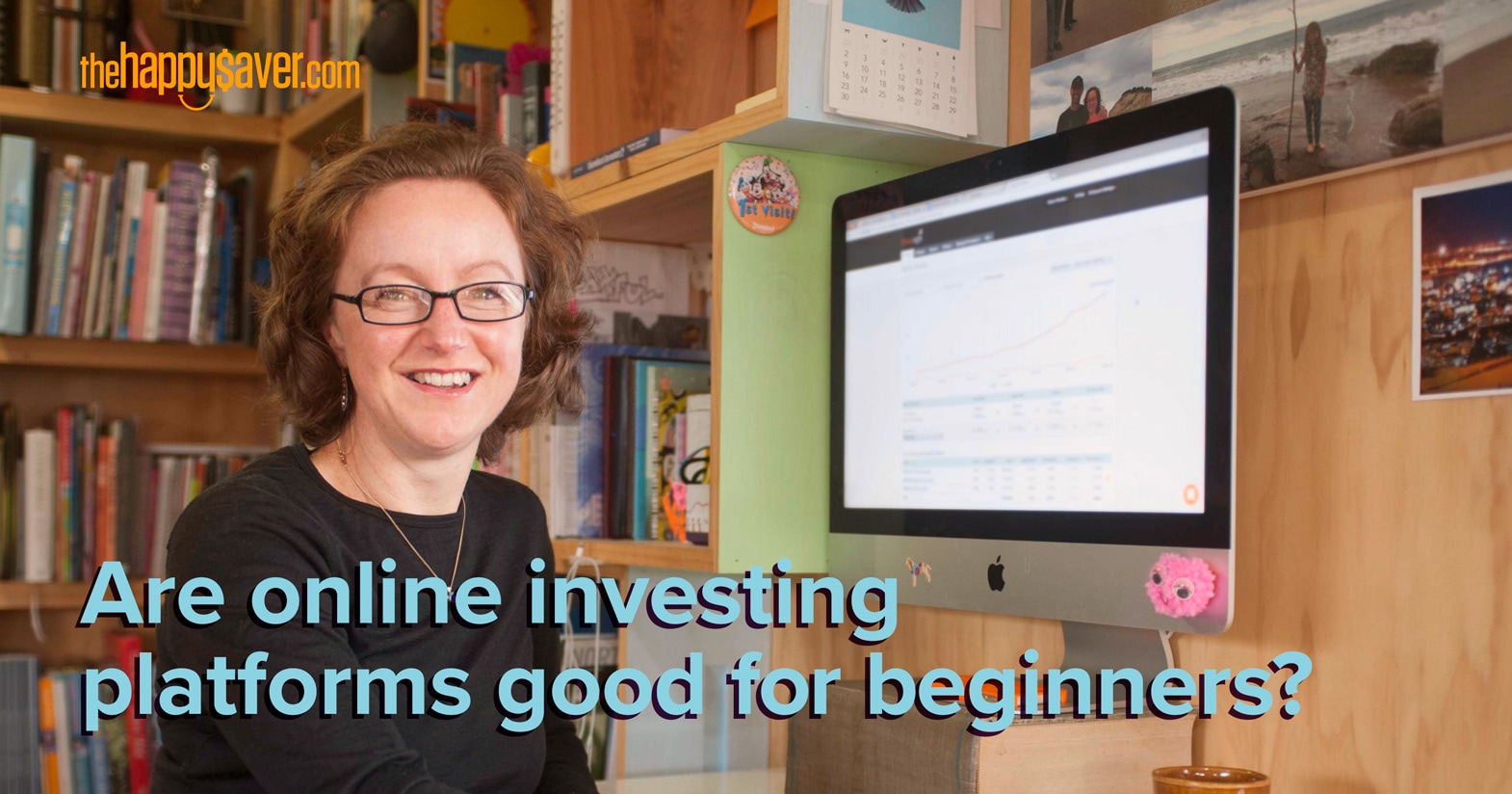
Are online investing platforms good for beginners? No.
They are perfect for everyone, whether they’re a beginner or experienced investor!
I’ve experienced investing both ways. I’ve used a traditional investment firm where I visited their office, had conversations with investment professionals, filled out a lot of paperwork, paid their fees, and then sent money to them each month that they invested on my behalf. Since I put my money in the care of someone else, I always felt removed from the process, never entirely understanding what I had invested in and if my returns were fair.
I’ve also used an online investing platform in the comfort of my own home. I educated myself about what type of investments would suit my long-term plans, and then I invested my own money instead of paying someone else to do it. I had total control over the process and decided exactly where my money went, and I had immediate access to all of my investments if and when I wanted to. It felt a lot more real and my wealth grew.
I prefer to invest by myself using online investing platforms because it forced me to become educated instead of handing that responsibility off to someone else. I remember the investment firm trying to educate me. Still, they were not speaking to me in the way I liked to learn, and I absorbed the information by seeking it out myself, and I’ve made far better decisions with my money.
Online platforms have wiped away the daunting process of using an investment firm, plus they are far cheaper to use, so more of your money gets to your investment of choice. When used with your keenness to learn, you have a low-fee, diversified way to grow your wealth at your fingertips. Your confidence increases when you see the investments you make working.
Educating yourself about investing and deciding what to buy before you sign up will make the ‘what do I invest in’ decisions so much easier once you have logged in.
I can take the pressure to choose the ‘best’ platform away right now.
There is no ‘best platform’ for investing online.
There is a variety available, and each offers essentially the same thing — access to the share market in a low-cost way. It’s about finding the one that you find easy to use and understand. The advice I often give to people is to research your options, visit each website and have a good look around. Visit social media and find out what other people think, and listen to their pros and cons. Once you settle on one, sign up, buy something, wait a week and then sell it again!
Then think about how you found the process:
Only once you are satisfied should you begin to invest in earnest.
Using an online investing platform is like visiting Disneyland. It would help if you had a plan before you enter. Otherwise, you will get in, feel overwhelmed and not make the most of it. Signing up is the easy part, but once you are in, you will face an overwhelming choice of companies and funds you can invest in.
Educating yourself about investing and deciding what to buy before you sign up will make the ‘what do I invest in’ decisions so much easier once you have logged in. You can immediately search and find the one or two investments you were looking for, buy them and move on with your day.
Finding a platform is the easiest part. Working out what to buy is the hardest. Some platforms are better than others at having educational tools and information on their website. I encourage you to read these as a starting point and then reach out to the broader internet and find blogs, podcasts, books and forums to round out your knowledge.
Do your research. Commit to learning, consult widely, seek a range of opinions and information and don’t just view things that back up your own ‘hunch’. If you have not internalized the view of becoming a long-term investor with a simple investment strategy, then your attention is likely to move on in this dynamic world.
In my view, New Zealand platforms Kernel and Hatch offer good on-site investment blogs, and my website, The Happy Saver, shares a bunch of knowledge to add to your learning. These resources are free to use and will help you decide on your investment mix (funds or shares) and whether you want to invest locally or globally.
I don’t like to think of people as beginner investors. Thinking of yourself as a beginner implies that you will make many wrong turns, fail, (hopefully) learn from your mistakes and then move forward. I don’t want that to be you. I want you to be more self-assured. You already have a lot more knowledge of companies and the share market than you realize, and I want you to go into it with a simple plan that you automate and settle in for the long term. That way, you set yourself up for success, and your money will grow.
Ruth blogs at thehappysaver.com all about how she and her family handle money. What’s the secret? Spend less than you earn, invest the difference, avoid debt and budget each dollar that flows through your hands. She firmly believes that if you can just get the basics right, life becomes easier from there on in.